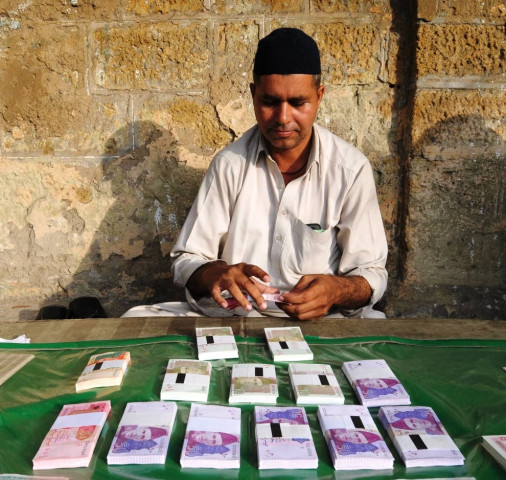A battered economy: Nothing personal, just business
Pakistan remained unable to attract foreign investment that could supplement the declining reserves.

The PPP-led government was on its last legs when 2013 dawned. Policy inactions during the first half of the year severely damaged the economy. Therefore, when the PML-N took the reins midyear, it had to go into firefighting mode rather than having a chance at implementing a well-structured economic policy.
The bad and the ugly
The 2008 economic crisis led the country to knocking at to door of the International Monetary Fund (IMF). Then, once again, Pakistan found itself in the same place in 2013.
Foreign currency reserves had started depleting due to the State Bank of Pakistan’s (SBP) irrational move to defend the sliding rupee. A jarring $3.4 billion were lost in the process. Furthermore, the bulk of IMF payments under the 2008 programme were approaching.
The icing on the cake was that Pakistan remained unable to attract foreign investment that could supplement the declining reserves.
The gap between national income and expenditures widened alarmingly due to uncontrolled expenses on power subsidies and the spending spree that preceded the elections. The last blow came from weak tax administration.
Power shortage reached 6,000 megawatts and the masses dealt with 12 to 16 hours of daily load-shedding.
Taking all this into account, the difficult political decision of entering into yet another IMF programme seemed inevitable.
However, then president Asif Ali Zardari decided not to go the Fund, due to fears that an IMF programme would make his party unpopular in the May 2013 general elections, and because of assurances given by SBP Governor Yaseen Anwar and then minister of state for finance Saleem Mandviwalla that they could arrange up to $4 billion.
Caretakers too could not take effective decisions to halt the downward slide. Resultantly, the fiscal year 2012-13 ended on June 30 with budget deficit of 8.2% of GDP, and SBP’s reserves standing at slightly over $6 billion, having depleted by $4.2 billion.
Onto another’s shoulders
PML-N came to power in early June and was faced with the immediate and gigantic task of presenting the next year’s budget that would provide some direction to the economy.
It also decided to take IMF loan that the fund approved in September.
Premier Nawaz Sharif declared that reviving the economy hinged on overcoming the chronic menace of load shedding and addressing terrorism.
Measures were taken to lessen power outages and Rs503 billion were paid to reduce circular debt in the energy sector. Electricity generation increased by 1700 MW.
From July to November, the government also lowered the budget deficit as compared to the previous year’s July-November period.
According to Finance Minister Ishaq Dar, the country’s economic growth in the first quarter of the current fiscal year (July-September) has increased to 5% from 2.9%.
However, the government has yet been unable to stabilize the external front. Foreign currency reserves fell to a 12-year low, despite the IMF programme. The rupee has depreciated over 7%. The increase in the price of oil and electricity has translated into inflation.
The government has reversed many important decisions, seemingly having succumbed to pressure exerted by industrialists. Uncertainty is bound to prevail until the centre can take a clear stand.
Published in The Express Tribune, December 31st, 2013.





1724319076-0/Untitled-design-(5)1724319076-0-208x130.webp)













COMMENTS
Comments are moderated and generally will be posted if they are on-topic and not abusive.
For more information, please see our Comments FAQ